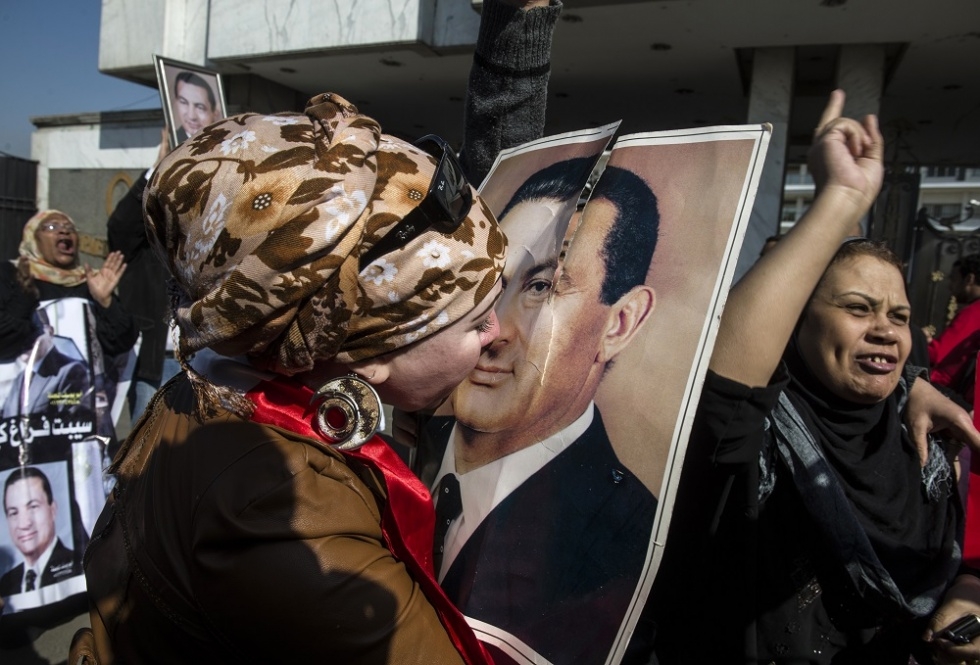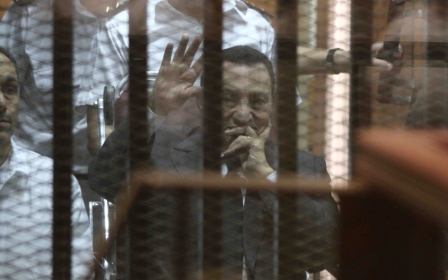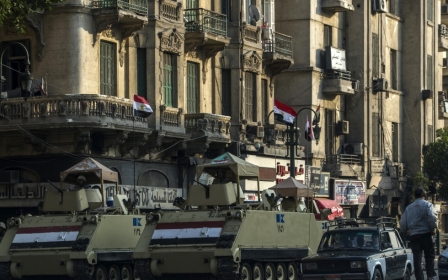Mubarak poised to walk free after court overturns fraud conviction

An Egyptian court on Tuesday overturned the conviction of former President Hosni Mubarak on charges of corruption, removing the last legal judgement against him and ordering a retrial.
Mubarak, 86, currently held in a military hospital where he was moved from prison because of his health, will remain in detention until the judiciary orders his release. He will not be released without a decision by the prosecution or the court that will retry him, the official MENA news agency quoted a security official as saying.
But even before the new court ruling, Mubarak had already spent enough time in detention - more than the three-year sentence for corruption that was overturned on Tuesday - to allow his release for time served.
If Mubarak is released, it would be the first time in Egyptian history that a former president was allowed to live freely and speak openly. Previous leaders have either left the post in military custody or died in office.
Analysts say that Mubarak's release could pose a challenge to Egypt's new president Abdel Fattah al-Sisi since Mubarak could begin publicly defending his tenure, criticising Sisi's rule or rallying his former loyalists in politics and government - any of which could prove difficult for the current president.
Prosecutors accused Mubarak and his family of illicitly charging the government for personal expenses - including utility bills, landscaping, home furnishings, refrigerators and kitchen supplies - and for a number of private homes and a public palace that was transferred to their ownership.
The corruption case has been dubbed by the Egyptian media as the "presidential palaces" affair.
Many of the expenses in question relate to five vacation homes that the Mubarak family owned near the seaside resort city of Sharm el-Sheikh. The family charged the government for the design and furnishing of a private office in a luxury hotel complex for Mubarak's wife, Suzanne, and for the installation of an elevator and a Jacuzzi in two other private villas and the construction of a mausoleum for a grandson.
In November, another court dropped Mubarak's conviction and life sentence over ordering the killing of demonstrators during the protests in 2011 that ended his almost three-decade rule.
The same court dismissed other corruption charges against Mubarak and his sons, Alaa and Gamal.
That ruling was widely criticised as an abandonment of the 2011 uprising. Thousands took to the streets, braving draconian new penalties against public demonstrations and protested near Tahrir Square on the night of the verdict. Security forces, who had sealed off the square, used tear gas to disperse the crowd.
Sisi ousted Mubarak's Islamist successor Mohamed Morsi in July 2013 and launched a deadly crackdown that has left more than 1,400 people dead.
Thousands more, mostly Islamist supporters of Morsi, have been imprisoned, and dozens sentenced to death after mass trials which the UN says is "unprecedented in recent history".
Human rights groups have said that Sisi has been even more autocratic than Mubarak.
The crackdown has also targeted several leading youth leaders who campaigned against Mubarak during the 2011 revolt.
Washington has slowly warmed again to its ally, after it initially lashed out at Sisi's crackdown on Morsi's supporters.
The US delivered 10 Apache helicopters last month after lifting part of a freeze on aid.
New MEE newsletter: Jerusalem Dispatch
Sign up to get the latest insights and analysis on Israel-Palestine, alongside Turkey Unpacked and other MEE newsletters
Middle East Eye delivers independent and unrivalled coverage and analysis of the Middle East, North Africa and beyond. To learn more about republishing this content and the associated fees, please fill out this form. More about MEE can be found here.



